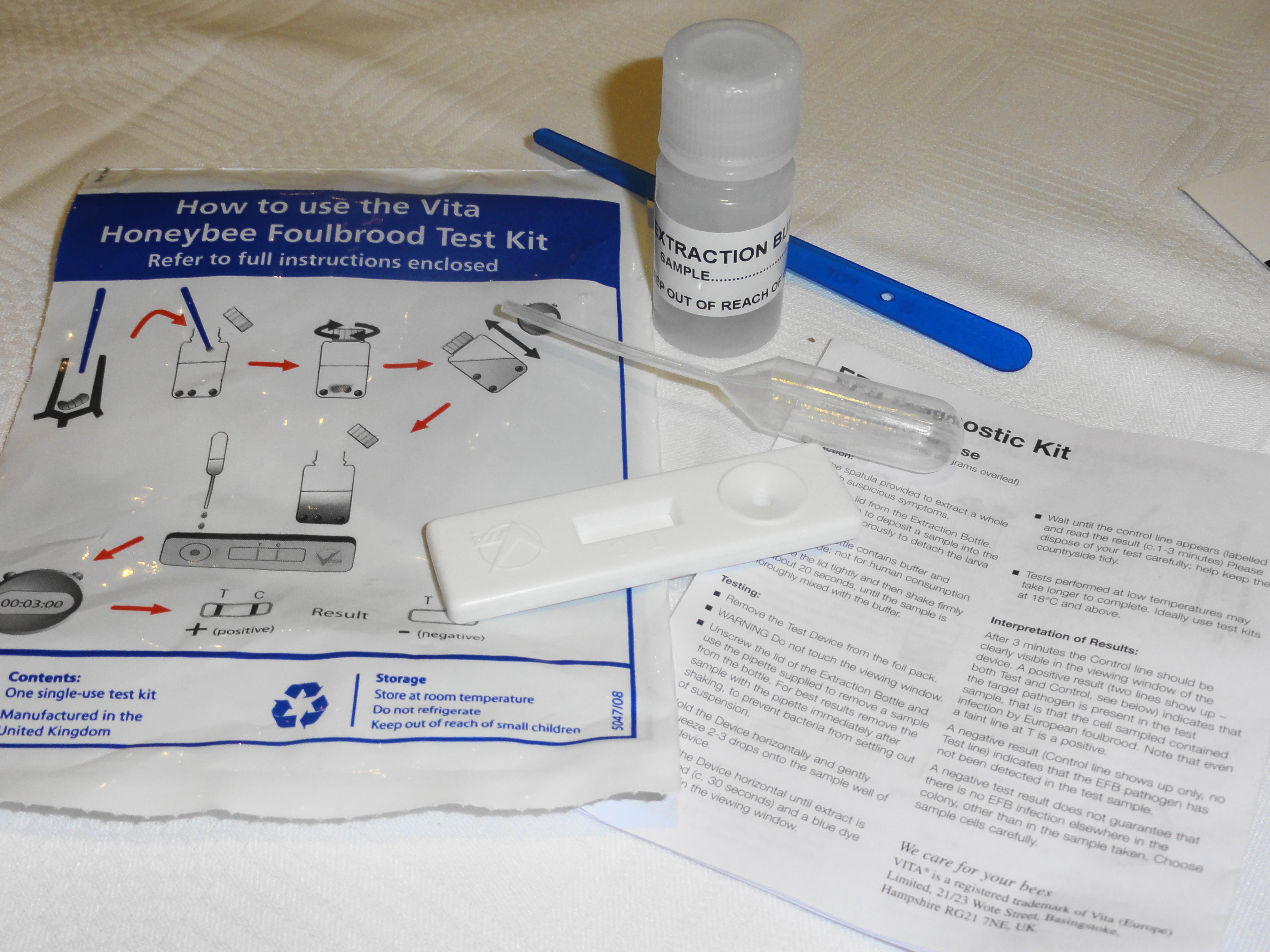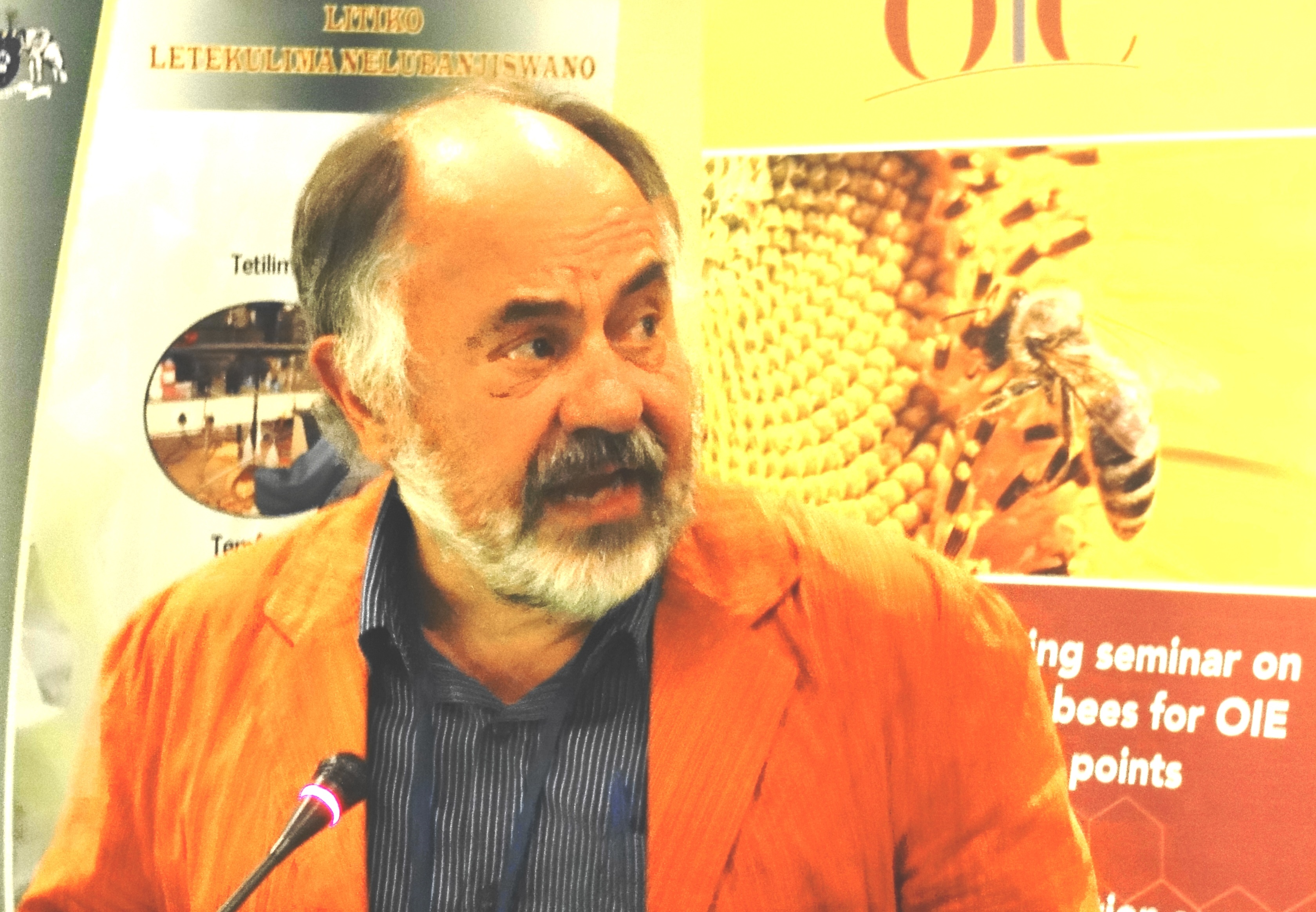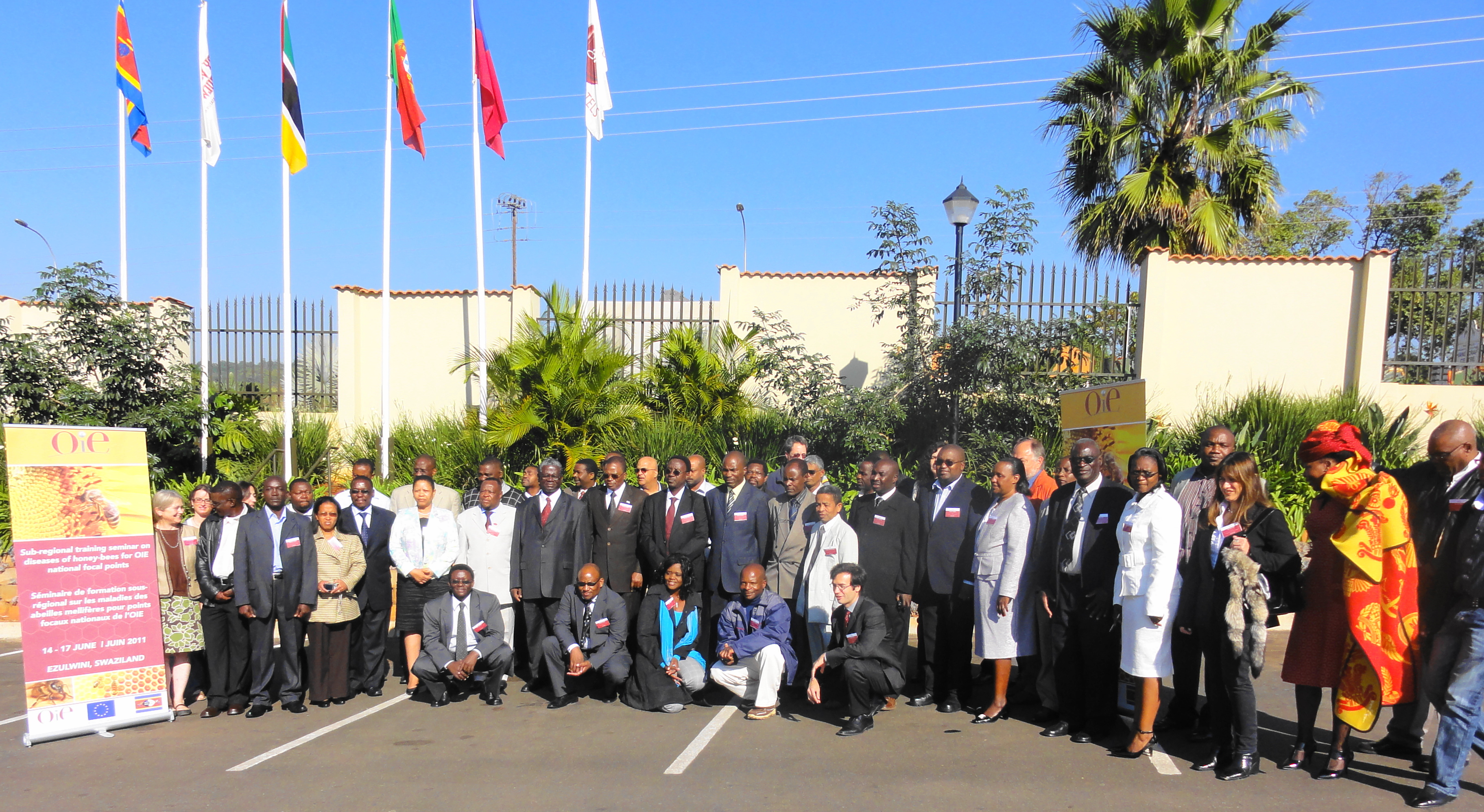
Swaziland hosted participants from OIE Member countries of the SADC region and experts from OIE Reference Laboratories for a training seminar conducted from June 14 – 17 2011.
The meeting was graced by the Kingdom of Swaziland`s top Ministry of Agriculture officials including Hon Minister Clement Dlamini, Permanent Secretary, Dr Robert Thwala who is past President of OIE Regional Commission for Africa and currently a member of the OIE Working Group on Animal production food safety, the Director of the Department of Agriculture responsible for Apiculture and the OIE Delegate for Swaziland Dr Roland Dlamini.
Prof. Wolfgang Ritter, designated expert of the OIE Reference Laboratory on honeybee diseases in Freiburg, Germany. Picture (c) N. Mapitse (oie) 2011
Group picture. Picture (c) N. Mapitse (oie) 2011
In his opening address, Dr Bonaventure Mtei, the Sub Regional Representative for southern Africa reiterated the need for a closer networking relationship between animal health experts, biologists and entomologists … a good way of putting the “One Health” concept into actual practice. He alluded to the fact that the OIE greatly values non traditional partners like bee experts and others whose knowledge and skills contributes to the development of standards published in the OIE Codes and Manuals.
The main objective of the training workshop, which was organised with the financial support of the European Union programme Better Training for Safer Food (BTSF) in Africa, was to share information on diseases of honeybees, bridging the gap between the national OIE sanitary information focal points and honeybees biologists and entomologists in order to enhance reporting of honeybees health to the OIE.
Dr Saley Mahamadou and Dr Yacouba Samaké recently appointed as President of the OIE Regional Commission for Africa and Regional Representative for Africa respectively, were invited to the seminar to acquaint themselves with key animal health stakeholders in the sub region.
In their opening remarks, they highlighted the importance accorded to honeybees health by the OIE and thanked the Government of the Kingdom of Swaziland for agreeing to host the seminar and appreciated traditional Swaziland’s hospitality.
In his official opening address, Hon Minister of Agriculture, Mr Clement Dlamini observed that “honey bees are wonderful creatures that contribute immeasurably to food security and therefore human existence and least to say honey bees are an integral part of biodiversity”. The Minister’s speech captured and put in perspective the messages the OIE has been sending out with respect to animal health, food security and biodiversity conservation in relation to benefits of pollinators including honeybees.
The seminar was structured such that it introduced the participants to beekeeping, to the biology of bees, to the OIE standards related to honey bees (included in the Terrestrial Animal Health Code and the Manual of Diagnostic Tests and Vaccines for Terrestrial Animals) and other relevant OIE tools , and to the OIE World Animal Health Information System (WAHIS) and the World Animal Health Information Database (WAHID).
This was followed by detailed presentations on diseases of honeybees from experiences in some southern African countries and from the OIE reference laboratories. Private sector perspectives were highlighted by the Chairperson of the South African Bee-Industry Organisation (SABIO) complemented by valuable contributions from a representative from the Bees for Development organisation.
A panel discussion on whether available tools, standards and guidelines were appropriate for the honeybee health in the SADC region raised several issues. It was interesting to note that the African honeybee species are fairly tolerant to some parasites such as Varroa mites and a number of other diseases because of their biological and behavioural characteristics.
It was therefore recommended that southern African countries should discourage importation of honeybees from other continents. Importation of these bees may introduce parasites and brood diseases such as American and European Foulbrood, viral diseases and protozoa such as Nosema.
The meeting was resolute that surveillance and monitoring of honeybee diseases should be initiated and or strengthened accordingly in all the SADC Member States. Lack of diagnostic capacity on honeybee diseases was cited on many accessions and participants were keen for this gap to be closed, in particular through the OIE Twinning mechanism with the existing OIE Reference Laboratories in Argentina, Germany, and France.
The establishment of a network on apiculture in Southern Africa was discussed to encompass both private and public stakeholders to complement Honeybee Councils already established in some of the countries like South Africa, Swaziland and Zambia.
The participants benefitted from a field trip as part of the training in which the participants witnessed beekeeping in the practice. Collaboration between extension officers and beekeepers was evident in areas such as in the development of training manuals and troubleshooting at production level.
The visit to a honey processing and packaging plant confirmed in principle that a processing plant does not necessarily have to be large to implement quality management systems and does not need to cover a large number of producers. The plant visited was supplied with honey from a few producers and the processed products are marketed locally in the supermarkets.
The four days workshop was officially closed by the Under Secretary of the Ministry of Agriculture Mr. Sabelo Masuku who emphasized that the end of the workshop was only the beginning of a better networking and urged the participants to implement what they have learnt in Swaziland to improve the livelihoods of communities in their respective countries.
All pictures (c) Neo Mapitse (oie) 2011, unless mentioned otherwise.



